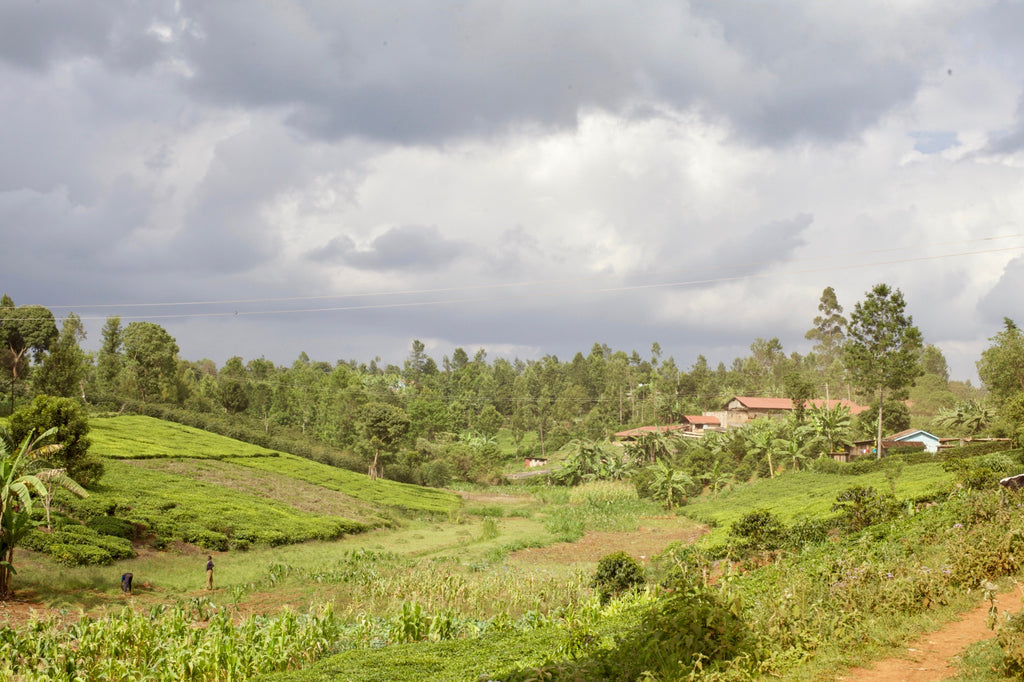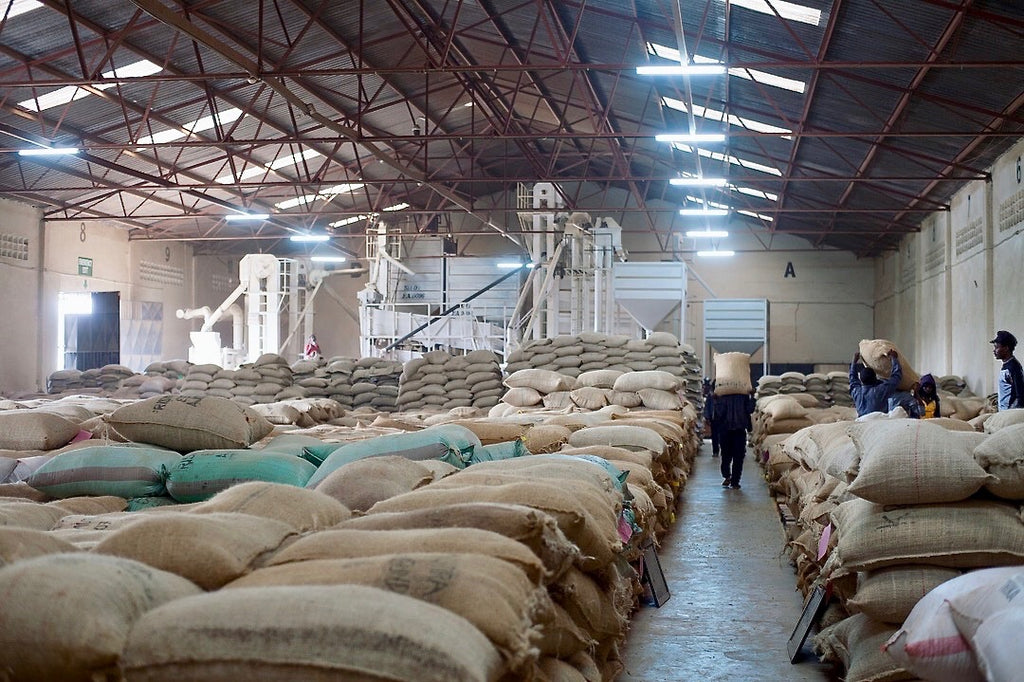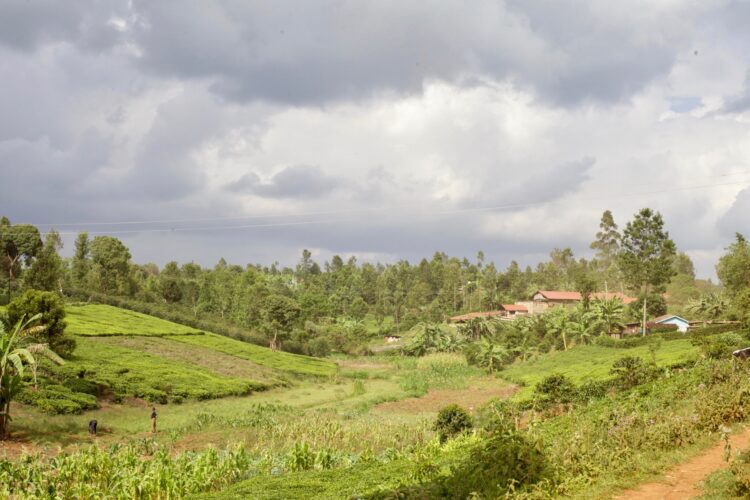Kenya Journals by Kris Schackmann – 5 Elephant’s co-owner and inexperienced espresso purchaser.
—-
In December 2017 we went to Kenya, and introduced again some espresso that we’re completely serving in our cafes now. Nonetheless, there’s an extended story of why we went to origin, that we wish to inform.
From virtually the first 12 months of 5 Elephant’s existence, we have targeted on working as immediately as doable with the producers who develop the espresso we need to roast.
Initially, it was an thought that we had seen taking root in the USA, however additionally beginning to achieve curiosity with some ahead pondering roasters in Nordic Nations and from one of the first roasters we met in Hamburg.
The attract of seeing the place the espresso we drink comes from, whereas unique and efficient for advertising, is a loaded topic that is about as complicated as any system may probably be.
When we began roasting in 2010, there have been so few firms who would promote us inexperienced espresso underneath 1 pallets value (600kg) that you may depend them on 1 finger. Significantly, there was solely 1 firm who would do it. So whereas we did have an curiosity in working immediately, we additionally incubated the thought as being the solely risk to obtain our personal drive for high quality.

The exploration of the origins of espresso can be intoxicating. Who would not need to journey the world, see new nations and meet superb, hardworking and devoted folks? For the final years we have purchased round 70% of our espresso immediately from producers or exporters at origin and it is one of the main causes we have been ready to roast coffees with a specific cup profile that we may not usually or simply discover from most importers.
So whereas our working at origin began as a approach to discover espresso high quality, it really was extra that we labored with nice producers (largely in Central and South America) who already have benefited from years of suggestions from inexperienced patrons and roasters, primarily from the USA. I know that a lot of roasters say they direct “their” farmers to choose the ripest cherries and many others, however from our expertise, most roasters choose their coffees on cupping tables and have little to do with the full manufacturing of espresso. With a selected emphasis on Kenya for this text, it appears to me that it is fairly uncommon for a espresso roaster to really spend extra than a few hours on a specific farm throughout an origin go to. In fact, there are notable exceptions and fantastic Roasters who’re doing nice work in Kenya, however for essentially the most half its espresso tourism in Kenya.
Why is this essential to spotlight?
It has taken us a whereas to perceive what worth we add from going to origin. We definitely don’t assist the surroundings by burning jet gasoline on our quests for espresso. So whereas it is one thing used for advertising that we have a “connection” with Kenya, we spent a few years on a somewhat egocentric quest for larger high quality beans, earlier than they’re bought for promoting as spot positions by inexperienced bean importers.
Of course there was a residual impact that the producers we labored with, in the introduction of social media platforms like Instagram, acquired to see their espresso names in cafes all over the world, however after some time we struggled with what worth of substance we have been leaving after our visits to origin.
Then got here our February 2016 go to to Kenya.
Maybe no single week of our firms historical past introduced us nearer to closing up and quitting espresso than that week in February. It uncovered some essential misunderstanding we had in our sourcing concepts and in addition highlighted our personal inadequacies in understanding easy methods to be accountable inexperienced bean patrons.

Kenya, for as lengthy as we have been conscious, has been a nation with one of the highest requirements for espresso manufacturing in the world. The lovely profile of the SL coffees, combined with the extremely fertile purple phosphoric soils, excessive altitude and abundance of clear water is virtually good for rising espresso.
In Kenya, coffees are both bought by means of a centralized governmental public sale, or by means of a advertising agent. Producers of espresso in Kenya are both personal farms known as Estates, or giant cooperatives with lots of if not over 1000 members all contributing to the similar lot of espresso that is milled in a given day. Most Estates have at one time or one other been a member of a cooperative and most cooperatives have labored with Advertising Brokers.

Advertising Brokers, such as in the case of one we work with Espresso Administration Providers (CMS), have skilled agronomists who spend all of their time visiting Estates and Cooperative whose espresso they market, to test high quality, present agronomic recommendation such as fertilization and fungicide administration, moist milling and drying methods. Most cooperatives or Estates do not have a moisture meter to know when their espresso is at exactly 10.5% moisture content material, so they rely on their agronomist to go to ceaselessly to monitor their drying instances and advise on the coordination to transfer the espresso (nonetheless in parchment) to the dry mill for short-term storage and then dry milling and delivery.
So in our expertise, the truth that the espresso is so completely cleaned and dried on raised beds in coordination with an agronomist and an expert Advertising Agent who has its personal QC lab mixed with an exporter who has strict tips for espresso they ship midway around the globe to clients, was fairly a secure nation to work with.
—-


